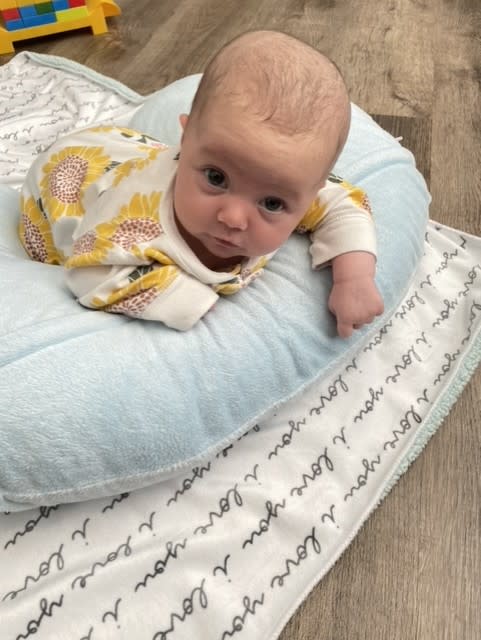More women freezing their eggs to preserve fertility
At the age of 32, Sabrina Kamer could feel her biological clock start to tick.
An OB/GYN resident at WellSpan York Hospital, her career was consuming a lot of her time. And she was also single.
“I still had at least two years of residency left and residency is pretty difficult,” she said.

She made a decision that’s becoming increasingly popular with women of her generation.
“I decided that I could freeze my eggs and put off childbearing and not have that stress and worry,” Kamer said.
With the help of Shady Grove Fertility in York, Kamer underwent weeks of testing, bloodwork and injections. She then underwent an egg retrieval under sedation, which was successful. They were able to gather 36 of her eggs for future use.
“It was a little uncomfortable after, but I rested for a day and I was back at work the day after,” Kamer said. “It definitely gave me peace of mind and let me focus on my studies and my residency as opposed to constantly worrying about my fertility and my future.”
Dr. Kara Nguyen with Shady Grove said more and more women, especially women in their 30’s, are choosing this option. They’re delaying motherhood to focus on their career or finding a life partner.
“I’m hearing so many amazing stories of women just wanting to empower themselves with this option,” Nguyen said.
In fact, Shady Grove has seen a 387% increase in this procedure over the past eight years.
“When you do freeze your eggs, that age that you freeze them, that’s the age they’re frozen,” Nguyen said. “So, when you use them later on – it could be 10 years later – you’re still using eggs that were 10 years younger at that point.”
She calls it “locking in your reproductive potential” and said it’s also an option for women with health concerns such as cancer.
“These may be the only precious eggs they might have before they go through their chemotherapy or surgery treatment for their cancer,” Nguyen said.
After the eggs are retrieved, they are frozen indefinitely. When women decide they are ready to start a family, the eggs can be thawed, fertilized in a lab and implanted. And there’s no impact to future fertility.
Kamer can attest to that. She gave birth to her daughter, Addison Rose, in February, conceiving naturally after her egg retrieval.

“She was unexpected…it just kind of happened,” Kamer said. “I still can’t believe she’s mine and I had a baby, but she’s all worth it.”
Kamer is set to graduate in July. And although motherhood came a little earlier than she expected, she said her frozen eggs give her peace of mind for her future; especially as she nears the age of 35.
“I’m definitely considering in the future using them and giving her (Addison) a sibling,” she said. “I always feel like I have that backup, so if it doesn’t work naturally I can use those.”
Here are some answers to frequently asked questions about the egg freezing process:
What’s the ideal age to freeze eggs?
Shady Grove said between the ages of 30 and 40 is ideal. They don’t recommend freezing eggs after the age of 41, although they said it’s an individualized decision.
What’s the cost?
The cost associated with egg freezing is typically $8,700 per cycle according to Shady Grove. Some insurance companies, however, do provide full or partial coverage for the procedure. There are also financing options available.
What’s the success rate?
There isn’t a lot of data because egg freezing technology is still relatively new and it all depends on how many eggs you’re able to freeze. Shady Grove does advertise success rates between 65 and 80%.
For more information, you can visit Shady Grove Fertility’s website.
Copyright 2024 Nexstar Media, Inc. All rights reserved. This material may not be published, broadcast, rewritten, or redistributed.
For the latest news, weather, sports, and streaming video, head to ABC27.
